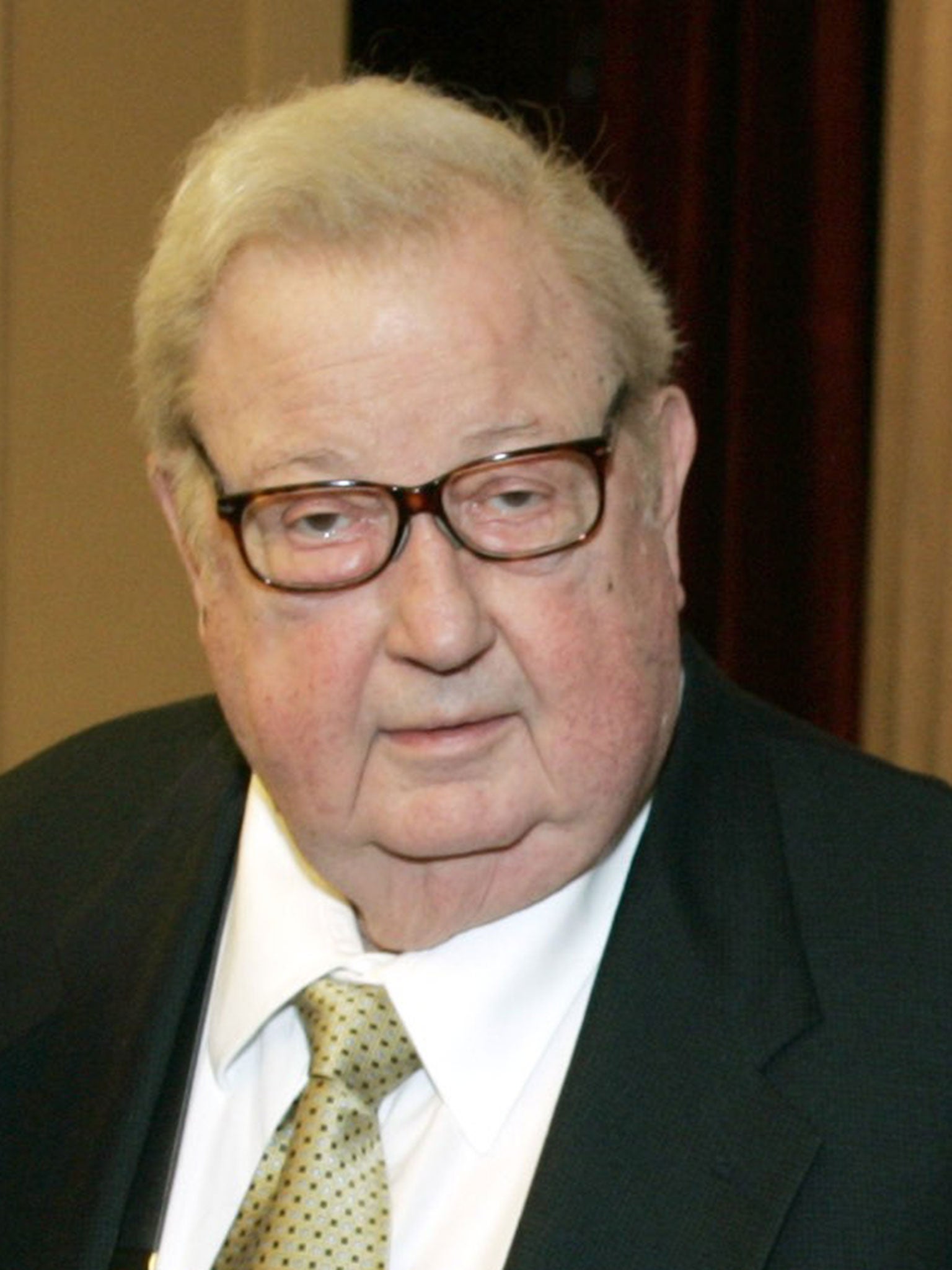Robert Drew: Award-winning documentary filmmaker with a fondness for Kennedy

Your support helps us to tell the story
From reproductive rights to climate change to Big Tech, The Independent is on the ground when the story is developing. Whether it's investigating the financials of Elon Musk's pro-Trump PAC or producing our latest documentary, 'The A Word', which shines a light on the American women fighting for reproductive rights, we know how important it is to parse out the facts from the messaging.
At such a critical moment in US history, we need reporters on the ground. Your donation allows us to keep sending journalists to speak to both sides of the story.
The Independent is trusted by Americans across the entire political spectrum. And unlike many other quality news outlets, we choose not to lock Americans out of our reporting and analysis with paywalls. We believe quality journalism should be available to everyone, paid for by those who can afford it.
Your support makes all the difference.Robert Drew was a pioneer of the modern documentary who mastered the intimate, spontaneous style known as cinema vérité and schooled a generation of influential directors.
Starting in 1960 with Primary, which followed presidential candidates and fellow Democrat senators Hubert Humphrey and John F Kennedy as they campaigned in Wisconsin, Drew produced and sometimes directed a series of television documentaries that took advantage of such innovations as light, handheld cameras that recorded both sound and pictures.
With filmmakers newly unburdened, non-fiction films no longer had to be carefully staged and awkwardly narrated. Directors could work more like journalists, following their subjects for hours and days at a time and capturing revealing moments. Little, if any, voice-over was needed.
The filmmaker Michael Moore said Drew and others “made it possible for real stories to be told through film. Modern art has Picasso. Rock’n’roll has Bill Haley. And the documentary film has Robert Drew. All of us who make non-fiction movies can trace our lineage to what he created.”
Drew once said,“Non-fiction filmmakers were afflicted by two problems, one technical, the other spiritual. Technically, they did not have the equipment to do the sort of work I had in mind. Spiritually, they didn’t care about the work because they’d been mistrained. They’d been mistrained because their equipment was so heavy and complicated that it made it impossible to shoot in situations where you could really capture reality.”
Drew’s dozens of films included The Chair, a 1963 documentary about a death-penalty case in Illinois, and 784 Days That Changed America: From Watergate to Resignation, winner in 1982 of a Peabody Award. Many were edited and co-produced by his wife Anne, who died in 2012.
While a photographer and editor with Life, Drew formed Drew Associates in 1960 with the goal of applying his magazine experience to films. Among those joining him were such future directors as DA Pennebaker (Don’t Look Back, The War Room), Albert Maysles (who with brother David made Gimme Shelter and Grey Gardens) and Richard Leacock (Happy Mother’s Day).
“I wondered why documentaries on television were dull,” Drew said in 2013. “I had no doubt we could make a lighter camera and I started with that premise and started finding people who could do that.”
Their approach, called cinema vérité, or direct cinema, was also used in feature films, by John Cassavetes and the French directors Louis Malle and Agnes Varda. And the new style led to fierce and enduring debates about truth in films, whether a fly-on-the-wall approach was any more objective than a narrative with a point of view worked out in advance. Frederick Wiseman, the award-winning documentary maker, would call cinema vérité “just a pompous French term that has absolutely no meaning”.
Primary is widely ranked among the most important political documentaries and in 1990 was entered into the Library of Congress’ National Film Registry for historic works. It tracked Humphrey and Kennedy in Wisconsin, a neighbouring state to Humphrey’s Minnesota, fighting for their party’s nomination, which Kennedy eventually received.
“Kennedy asked questions about how this would work. Was I out to get him? He didn’t use those words, but that was his question,” Drew later explained. “I told him we were partial to neither side and would edit fairly, and for this to work at all, he would have to trust me. He gave me a long look and said, ‘If I don’t call you by tomorrow, we’re on’. And he didn’t call, and we were on.”
In 1963 Drew and his associates made Crisis: Behind a Presidential Commitment, about the showdown between the Kennedy administration and the Alabama governor George Wallace, who was resisting a court order to integrate the University of Alabama. They were permitted remarkable access – from the White House to the office of Attorney-General Robert Kennedy to the Alabama university campus, where a defiant Wallace stood in a schoolhouse door, to inside Wallace’s car as he warned that the next presidential election would be decided in the South.
Drew’s documentaries covered various subjects, including Duke Ellington and space explorers, but he had a special fondness for Kennedy. The filmmaker would remember the president telling him that he should spend enough time around him so he would not even know he was there. The system worked so well that Kennedy nearly undermined his own foreign policy.
“He forgot about us so completely that at one point he was talking about joint manoeuvres off Cuba,” Drew said. “The country hadn’t gone into Cuba yet. A general who was there had to remind him there was a camera in the room shooting. He looked at me and grinned. I grinned back, and we walked out."
Robert Lincoln Drew, documentary film-maker: born Toledo, Ohio 15 February 1924; married twice (three children); died Sharon, Connecticut 30 July 2014.
Join our commenting forum
Join thought-provoking conversations, follow other Independent readers and see their replies
Comments